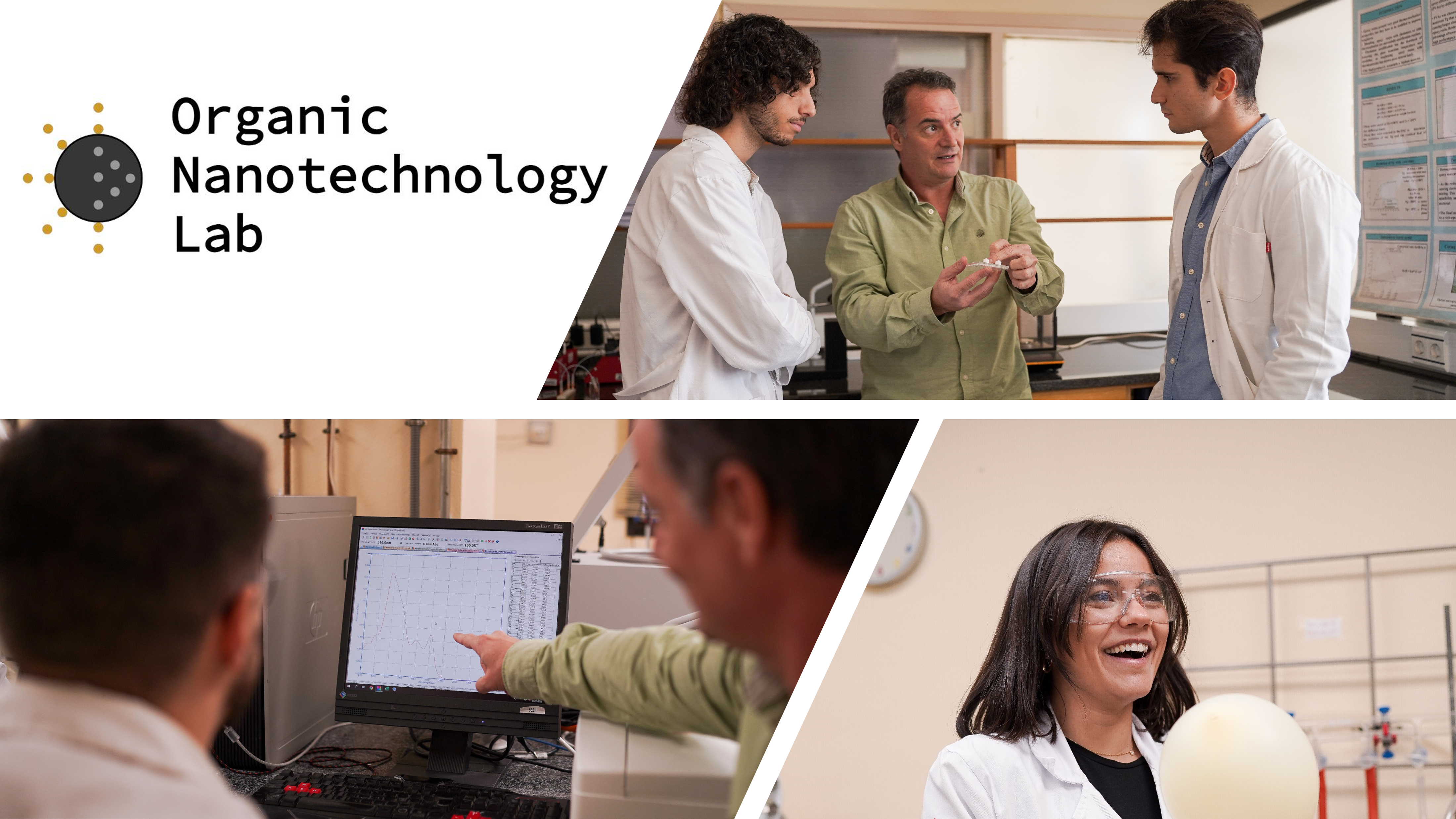Organic Chemistry Applied to Nanomedicine: For a Rational Design of Novel Therapies.
The use of nanoparticles as drug carriers for antitumoral therapy has attracted huge enthusiasm in the recent years. This interest is mainly based on the enlightening discovery by Maeda and Matsumura who reported that nanoparticles tend to be specifically accumulated in tumors in comparison with healthy tissues. This paramount discovery triggered the race to produce smart nanocarriers capable to transport antitumoral drugs and deliver them to tumoral zones without affecting healthy tissues.
Our objective at the Organic Nanotechnology lab is to develop stimuli-responsive multifunctional nanodevices capable to interact with different cell populations in a controlled manner, from the own tumoral ones to supportive and immune cells which play a pivotal role in tumor progression. For this, different nanosystems are used as soft polymeric nanocapsules and hybrid organic-inorganic protocells which allow us to transport a wide range of therapeutic agents from small cytotoxic drugs to large macromolecules such as proteins, enzymes and oligonucleotides. Moreover, we are interested in the design of nanoassemblies able to enhance the natural capacity of immune cells to defeat tumors improving their targeting skills as well as their survibavility in diseased tissue. We are also interested in the design of novel targeting moieties which can be attached on the nanocarrier surface to improve their capacity to recognize the target cell. The presence of these targeting groups allows the selective uptake of the nanocarriers only in the desired cell reducing the apparition of side effects
We are working in close collaboration with expert oncologists and immunologists at different institutions as Hospital Infantil Universitario Niño Jesus and Hospital La Princesa in Madrid, and St. Gallen Hospital (Switzerland) to evaluate the efficacy of the nanodevices and their capacity to eradicate the tumor.
“The boundaries of nanotechnology are only limited by our imagination”

Funded by

Research funded by Ministerio de Ciencia e Innovación, Agencia Estatal de Investigación through projects: PID2019-106381RB-I00/AEI/10.13039/501100011033 and PID2022-141917OB-I00